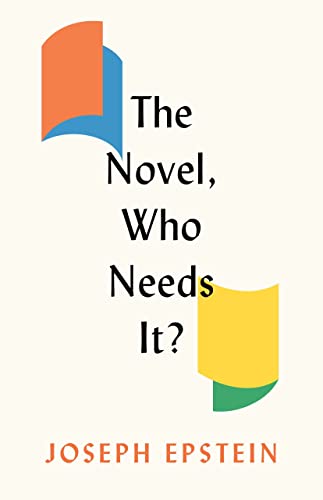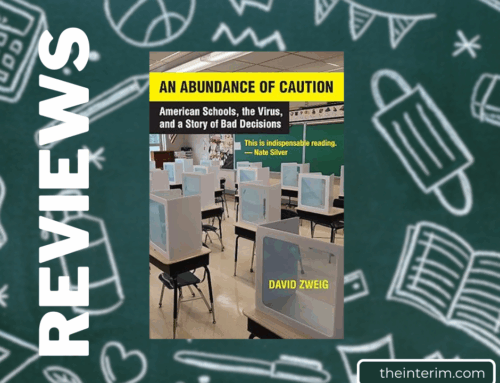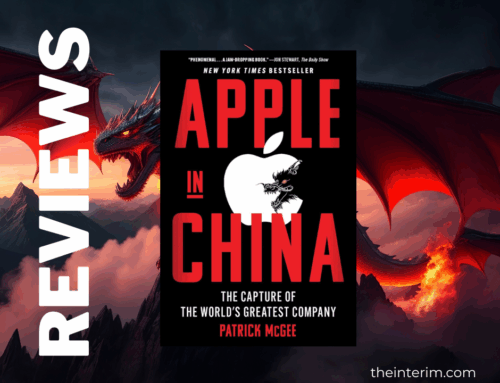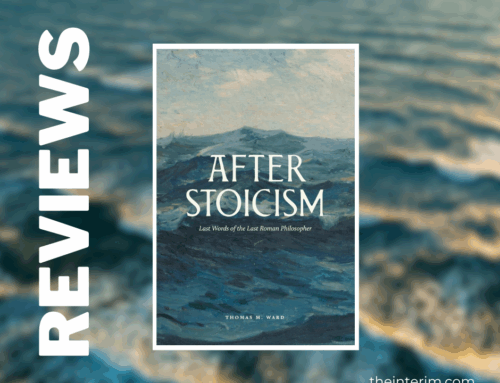The Novel, Who Needs It
by Joseph Epstein (Encounter, $25.99, 142 page)
Paul Tuns
 Cards on the table: Joseph Epstein is one of my favourite authors. I have more than 20 of his books on my shelves, most of them collections of literary essays. His essays on authors have led me to read hundreds of books I might not otherwise have bothered to open. His style is that of the “familiar essay,” which in the hands of Epstein combines the casual and erudite. His latest book – which he calls an essay, albeit a long one – is The Novel, Who Needs It – a lament on the decline of reading literature and a clarion call for people to return to the pages of serious fiction.
Cards on the table: Joseph Epstein is one of my favourite authors. I have more than 20 of his books on my shelves, most of them collections of literary essays. His essays on authors have led me to read hundreds of books I might not otherwise have bothered to open. His style is that of the “familiar essay,” which in the hands of Epstein combines the casual and erudite. His latest book – which he calls an essay, albeit a long one – is The Novel, Who Needs It – a lament on the decline of reading literature and a clarion call for people to return to the pages of serious fiction.
Recent surveys indicate that less than half of the public read fiction of any kind, let alone the elevating kind envisioned in Epstein’s apologia for literature. In the longest chapter of The Novel, Who Needs It, Epstein examines some of the reasons for the decline in reading fiction, including the internet, political correctness, the nature of the publishing industry, graphic novels, and “therapeutic culture.” The publishing industry, which needs to make a profit, caters to a popular audience. The internet has not so much destroyed our attention span as reoriented our reading toward information. Graphic novels have dumbed down reading. Political correctness (which limits the topics authors can explore) and therapeutic culture (which seeks to affirm one’s self-esteem) are particularly anathema to the purpose of reading “serious” or “quality” fiction.
We do not read – or at least we should not read – because we can identify with the author or the particulars of a story (because of shared race, sex or sexuality); we read, Epstein argues, to expand our vistas. Epstein writes, “What a novel can do, by presenting a life or lives different from, sometimes foreign to, one’s own, is to expand one’s sympathies (sometimes), alter one’s taste (often), widen the lenses of one’s experiences (always), and take one outside oneself (if one is lucky.)” It does this by “human illustration” in a way no other art form can (including drama and poetry). Television and film cannot take us inside the mind of the characters and therefore are poor substitutes for understanding the moral choices with which they are faced. Epstein says serious fiction teaches a “respect for the complexity of experience,” by providing nuance and choices that film, television, and other art forms can only hint at. Serious fiction at its best replaces “argument with human illustration” because it is the art form best able to “accommodate the messiness of detail that life presents.” In doing so, it informs the moral imagination, a phrase penned by Edmund Burke but which Epstein does not use.
Epstein approvingly quotes the English screenwriter Frederic Raphael’s observation that fiction is truer than truth, and thus can help the reader comprehend – or at least glimpse – truths better than “history, biography, social science, (and) philosophy.” The best of literature operates “above the realm of ideas” and thus even when it tackles political topics, it avoids reductive politics by focusing on the human drama, the “more complex” and “higher” truth. The experience of the characters accommodating the messiness of real life is vastly superior to the conceptual or theoretical explanations that social science, philosophy, and psychology present, because they tend to “explain more than they can justify” precisely because they, by necessity, simplify human experience. Epstein quotes the French novelist Marcel Proust who said, “It is life that, little by little, example by example, permits us to see that what is most important to our heart, or to our mind, is learned not by reasoning but through other agencies.” Epstein explains that those agencies include “our feelings, sentiments, instincts, prompting of conscience,” aspects of our inner lives that non-fiction inadequately addresses. Thus, reading serious fiction is one way in which “we learn what is important to our heart and mind both.”
To discover what we find important, we must be engaged readers of novels and that entails “wondering why the novelist has done what he has, in other words putting yourself in the place of the novelist” and not merely the characters. This requires a sense of understanding why he has created the plot he has or the language she uses to describe what is happening, and in this way, as the critic Percy Lubbock has said, “the pleasure of creation is renewed.” Epstein says that the test of serious fiction is not that it is a page-turner, but a “page-stopper – novels that made you want to stop and reread key passages, to admire their brilliant formulations, to pause to grasp the import of the material, to consider how the novelist had achieved his marvelous effects.”
Lubbock also said of books, “as quickly as we read it, it melts and shifts in the memory.” Epstein notes there are books he enjoyed immensely yet can scarcely recall details about the plot. Still, the story has become part of the reader, or as Epstein writes, “I am confident that they have nonetheless left a rich deposit in my mind of a kind, I like to believe, goes well beyond recollecting the details of their plots.” In this way – and this is the most important reason to read serious fiction – it broadens our experiences. Like Epstein, I have read a great deal of history of European wars, but the greatest feeling of understanding of what it was like to live through them comes from Tolstoy’s War and Peace and, for me, at least, Victor Hugo’s Les Miserables. That is because, as Epstein explains, the great novels’ “subject is human existence itself.” Epstein says he could provide a list of novels “that would tell you more about the history and psychological condition of the United States than a general history of the subject.” I have no doubt that is true.
Epstein does not mention C.S. Lewis, but the character of Eustace Clarence Scrubb from the Chronicles of Narnia, is described by Lewis as liking “books if they were books of information and had pictures of grain elevators.” That is, he only enjoyed non-fiction books that he thought was useful, whatever that might mean. Elsewhere, in The Abolition of Man, Lewis said that “without the aid of trained emotion, the intellect is powerless against the animal organism.” One way to train emotion is through reading serious literature.
The novel, Epstein neatly summarizes, “is an instrument of discovery,” helping the reader discover, little by little, more about human nature (in a way that philosophy can only hint at in theory). Through serious reading of serious literature, we train our emotions by understanding more deeply the moral complexity, indeed the messiness, of life in all its possibilities. It is in the plots and characters of literature, that we come to comprehend how others tackle unrepeatable or unlikely human experiences but which become part of our own rich deposit of experiences. Epstein has in mind, when he writes about “superior novels,” books written by Cervantes and Jane Austen, Balzac and Proust, Dickens and Dostoevsky, among others, not modern spy thrillers or romance novels. There is no shortage of great books and Epstein considers many in a chapter that includes what other critics and authors considered the best of the best as something of a guide for his readers. While it is impossible to read all serious fiction, it is never too late to start nor is there ever reason to end the habit once started. It is a deeply enrichening experience that helps us, as C.S. Lewis suggested, overcome our mere animal instincts. So, to answer the question in the title of Joseph Epstein’s book, who needs the novel, the simple answer is: all of us.




